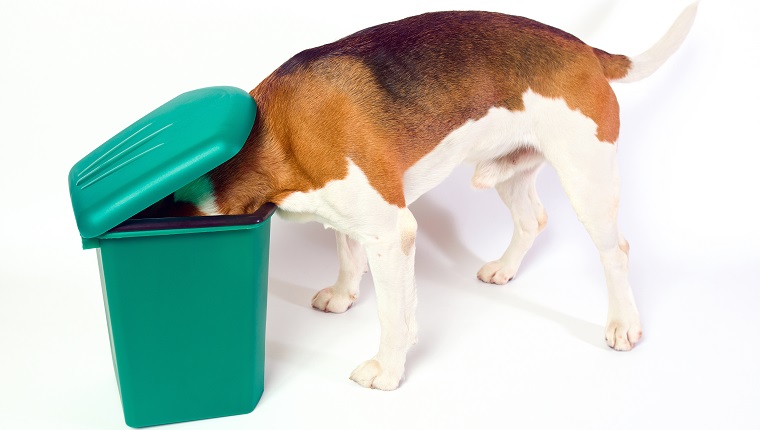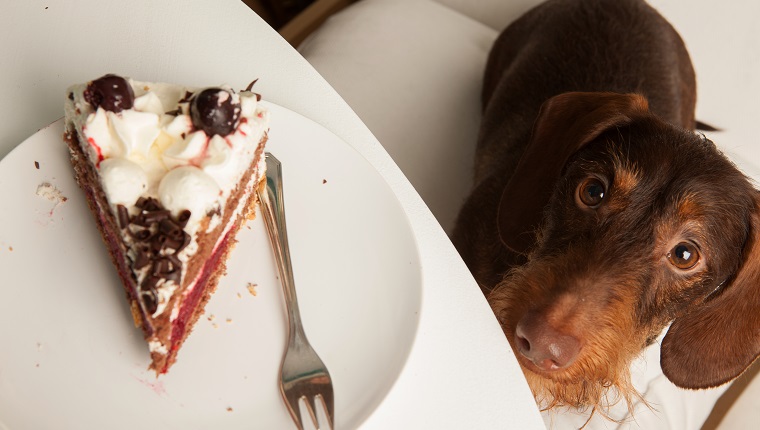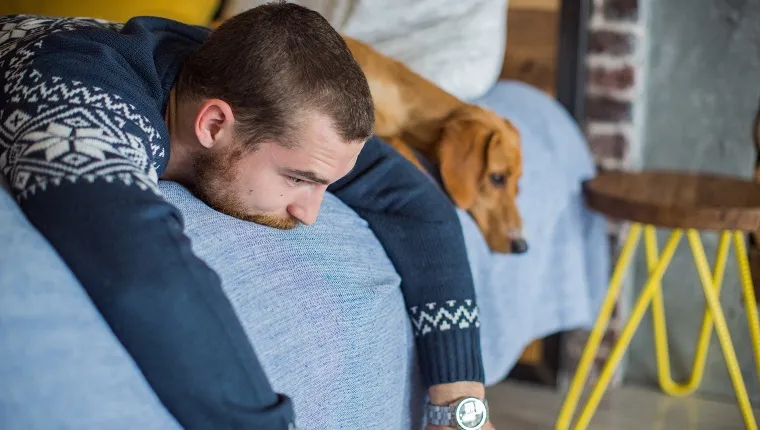Is your dog happy?
As dog parents, we learn to interpret body language and vocalizations to determine what moods our dogs are in. We want the best for our dogs, and when they seem unhappy, so are we.
Most of the time, we take steps to make our dogs happy. But do they need to be happy all the time? Is that even good for dogs?
Parents of human children can tell you that their kids are not always happy, and that’s a good thing. If kids were never allowed to experience unhappiness, they would never be prepared for life in the real world, and they would never learn how to solve problems.
The difference with our dogs is that they never really have to go out into the real world. They don’t have to grow up, leave home, get jobs, suffer heartbreak, and cope with all the difficulties we face as adult humans. So what is the harm in keeping our dogs happy all the time?
Well, if you really think about it, there is value in unhappiness, and there are reasons to stop ourselves from attempting to make our dogs perpetually happy.
Learning From Unhappiness

Maybe you’ve seen a human child playing with a toy too aggressively. Their parents tell them to stop or they’ll break it, but the kid keeps acting out. Suddenly, the toy breaks. The kid cries.
The parents then have a choice. Do they immediately comfort the child, buy them a new toy, and make them happy again? Or do they let the kid cry it out?
In this case, providing immediate happiness will make the kid stop crying, but they will learn nothing. Letting them go through the unhappiness, however, can teach them to listen better in the future, play more gently, and comfort themselves when things go wrong instead of always depending on others who might not be there next time.
Negative consequences make us unhappy. They make our dogs unhappy, too.
But unhappiness can lead humans and dogs to be more prepared and alert in the future. We can use an example with dogs instead of children since that’s what this is all about.
I’m reminded of a picture someone posted on social media of their dog with a garbage can lid stuck on their head. The dog tried to sneak into the trash and was looking shamefully at the camera, lid dangling around their neck.
Many people found the picture funny, but others commented that the person should put the camera down and help their dog immediately. How dare they let their dog be unhappy for the seconds it took to take a photo? Couldn’t they see that the dog was displeased? How could anyone laugh while a dog was suffering?
Most of us know, as pet owners, that it’s fine for our pets to be unhappy some of the time, especially in teaching moments, and especially when they’re not in immediate danger.
No harm was done in taking an extra few seconds before helping the pooch. If anything, the dog learned that there are consequences to rooting in the trash, and the human learned to keep the garbage secure and off limits.
This might prevent an incident in the future, even for the dog owners who saw the picture online. Dogs can choke on trash or eat something toxic, and the unhappiness of the dog now may be what stops that from happening later.
People and dogs learned from unhappiness in this case, and that will help them be safer and happier in the future. As a pet parent, you’ll face teaching moments often, and they’ll help you and your dog grow.
Your dog’s unhappiness now will keep them safe later and help you be a better dog owner.
Deep Happiness And Temporary Unhappiness

A temporary state of unhappiness can help dogs and people learn, but it is also sometimes more important than immediate relief.
For instance, let’s say that you are eating a delicious dessert. Your dog can see and smell it, and they start to beg. When you refuse to share your food, your dog grows unhappy.
You offer them appropriate food instead, but they know your dessert smells better, and that’s what they want. So they cry and whine, and it starts to make you a little sad, too. You go into another room, but your dog scratches at the door and cries some more.
What do you do? Do you give your dog the dessert, just so they instantly feel better and you don’t have to feel so guilty? Or do you do the responsible thing and realize that your dessert has sugar and chocolate and artificial flavors that may be toxic for dogs, or that this food might contribute to the development of obesity and diabetes, or that, at the very least, it will likely cause a tummy ache that will make your dog even more unhappy later?
Are you going to be a pushover or a parent?
We constantly have to deal with temporary unhappiness so that we will be more deeply happy in the long run, and we need to do that for our dogs, too.
Your dog may live a few short, happy years eating all your sugary desserts, but eventually they will probably live the last few years of their shortened life with a debilitating condition that will make them suffer as a consequence. Wouldn’t they be more deeply happy eating appropriate food, living a longer, less painful life, and spending more healthy years with you?
As a dog owner, you will constantly have to make decisions that will make your dog unhappy in the short term so that they can be happier in the long term, and not just when it comes to dessert. You’ll have to give them medicine, bring them to the vet, put them on a diet, groom them, give them a bath, and do all sorts of things that will make them unhappy for a short time.
Your dog needs to learn, and you need to make appropriate decisions for them when they can’t do it themselves. Eventually, they will stop begging for your dessert when they know you aren’t going to give them any.
They’ll be fine. They’ll move on. So will you, and you’ll both be better off.
When To Let Your Dog Be Unhappy

Your dog’s happiness should absolutely still be a concern, and your pup should know that they can trust you to get them out of a bad situation when they truly need it.
They should know that you are their best friend, and even though you must let them be unhappy sometimes, it gives you no pleasure to do so.
Knowing when it is right to let your dog be unhappy, however, is something you will have to learn as a pet parent, and there are times when you will fail. There are times when you let them be unhappy for too long, and there will be times where you give in and do the wrong thing just to make them stop whining.
That’s okay, so long as you learn and strive to do better all the time.
Pet parenting isn’t about being perfect; it’s about being the best you can be and improving.
You should let your dog feel unhappy when it can act as a teaching moment, but only for as long as it takes for them–and for you–to learn something, and never if they’re truly hurt or suffering. You should let your dog be unhappy when their temporary misery will lead to their deeper, lasting happiness into the future.
Knowing where that balance lies is something that you can really only learn by experience, and you will learn. Give it time and allow yourself to fail. Let yourself and your dog feel unhappy from time to time so you can strive to grow happier in the long run.
In the meantime, don’t leave nasty comments for people who take pictures of their dogs with garbage lids on their heads. Their dogs are fine. They’re learning. You can learn from their mistakes, too, if you pay attention.
Are there ever times where you let your dog go through unhappiness? How do you take steps to make sure your dog is deeply happy? Let us know in the comments below!









